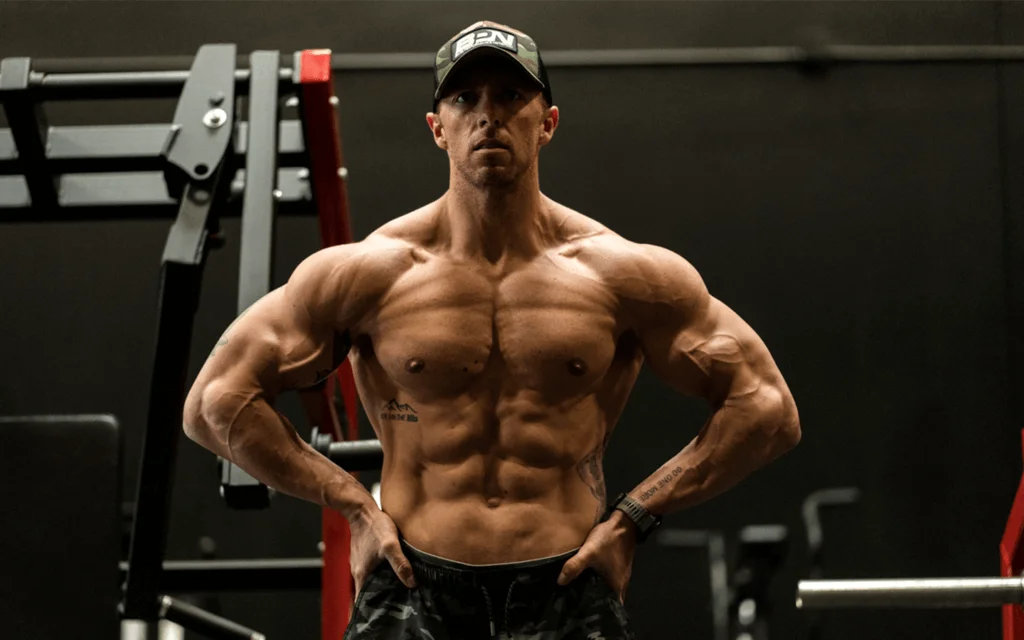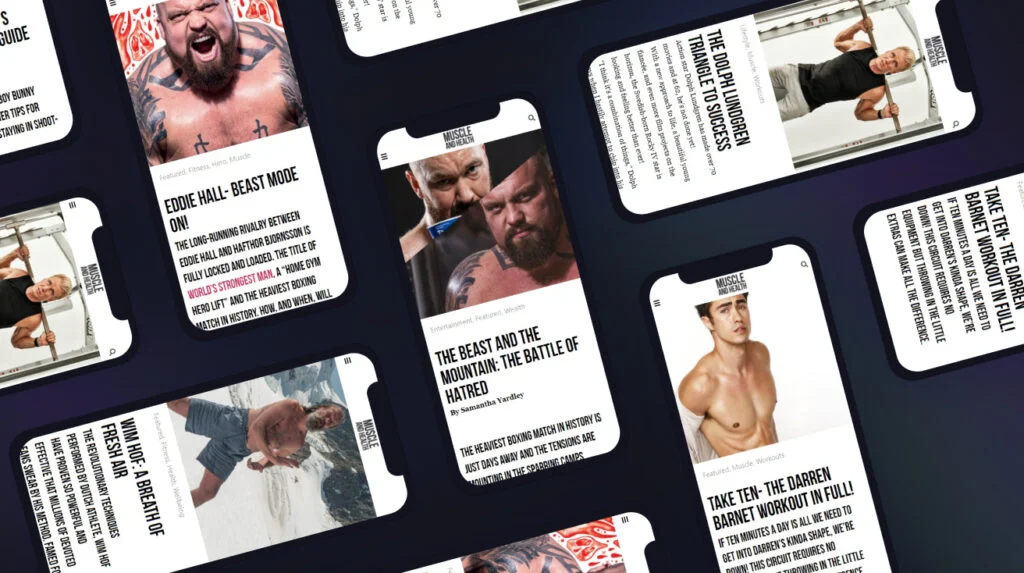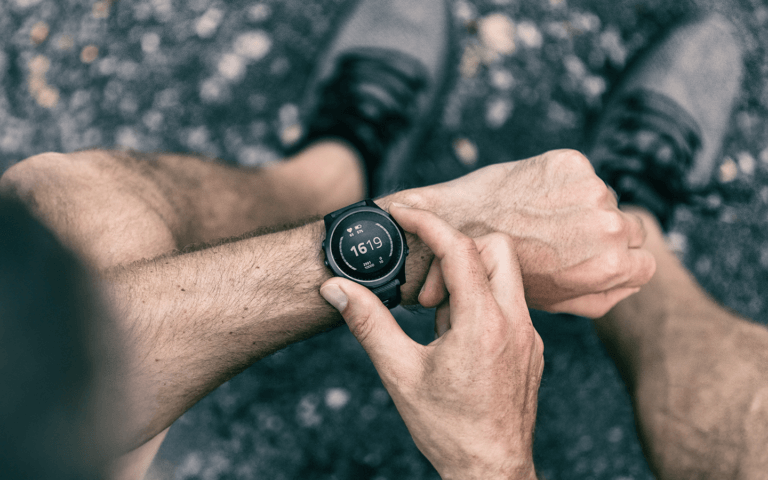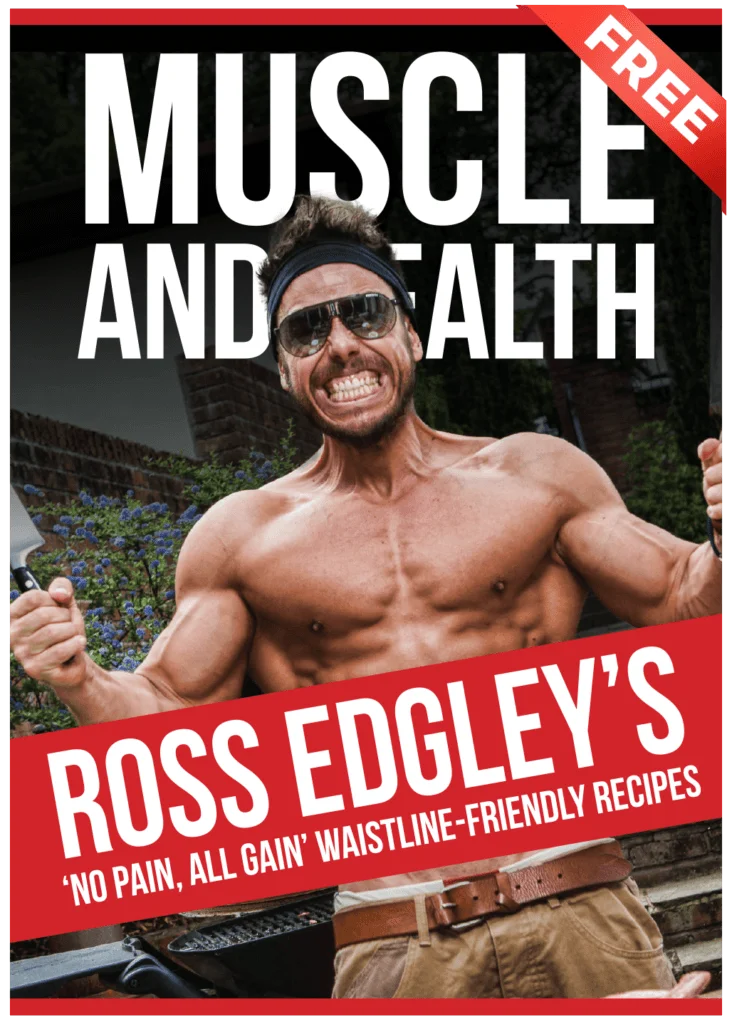Interview by Samantha Yardley
Photo Credit: Bare Performance Nutrition
Nick Bare hasn’t changed much since he was 14-years-old. Of course, his aesthetics has undergone a dramatic revamp; bulging veins and muscles showcasing chiselled and defined craftsmanship are the product of consistent training and dedication to nutrition.
That’s obvious.
But he still remains the positive, driven and charismatic Nick who grew up in a small town in central Pennsylvania, powered by a passionate will to succeed and mine the diamonds that exist in every challenge he encounters.
A people person who strives to harness the potential of the people around him, his rise over the last five years has been a symbol of his endless work ethic.
Bare Performance Nutrition, which he founded in 2012 out of his tiny apartment above a bar on the main street of Indiana, turned over 40 million dollars in revenue in 2022.
Marathons, IRONMAN’s, ultra runs, triathlons, and most recently, bodybuilding shows have been conquered along a journey of unfiltered authenticity for all to see on his YouTube channel, currently boasting 918,000 subscribers.
Nick recently became a father to a girl – Charlie Grace Bare – completing the culturally defined perfect family along with his wife Stephanie – who he met in 2015 – and their two Goldendoodles Remi and Ryder.
A multi-million dollar business, a beautiful family, a picturebook home, a successful podcast and an all-around nice guy. Nick Bare is the modern-day man that every male should strive to become.
Right?
At the age of 14, Nick would have scarcely believed his current reality.
“I guess you could categorize it as anorexia. I was really just starving myself. I was in and out of the hospital for over a year. I knew I was starving myself.”
So, how did it come to this, and how did Nick turn it around to achieve his current reality?
No more oranges…
An athletic middle school student, Nick played baseball, ran track, and was surrounded by a group of solid friends and a tight-knit family, all of which fall into the stereotypical American upbringing.
Growing up, Nick coined himself as chunky and big-boned but never fell into the overweight category due to his active lifestyle. Like so many other American families, the Bare’s loved to eat, which was no surprise given the plethora of lip-smothering options in central Pennsylvania at the time.
Diet – and the concept around weight management – never crossed his mind, with Nick’s parents endorsing healthy food choices in generous portions, some of which were so fresh it was grown in his grandparent’s garden.
But that all changed when the element of self-control was introduced, and for the first time in his life he was in charge of what he put in his body, and, perhaps subconsciously, he slowly started decreasing the amount of food he was consuming.
Throughout the day, Nick would grab his hip bone, using it as a marker for weight loss. The more hip he could feel, the more weight he knew was lost. He applied the same ritual to his stomach.
Middle school lunches changed as Nick’s relationship with food became more problematic. A base meal of a bottle of water, a turkey and cheese sandwich and an orange slowly was eroded over time.
Soon, it was half a bottle of water, half the orange, and the turkey and cheese sandwich with a carefully selected portion of the bread accompanying it. By the end, it was a few sips of water, no orange, no bread—just the turkey and cheese.
The feeling of starvation upon returning to class was a mental win for Nick, as was the sensation of having a pit in his stomach before bed.
In his mind and through his eyes, Nick thought he had pulled the rug over his parents’ eyes, being able to operate every day with toxic diet traits resulting in significant and potentially damaging weight loss.
Little did he know, his mother was on to him, and soon, a trip to the doctor was ordered.
“The doctors, my parents, didn’t know what was going on. They thought at one point I had celiac disease. They thought I had a virus that I picked up in Mexico. No one could figure out why I was losing weight. I knew the whole time. I was starving myself. I was in and out of the hospital, doing multiple tests and talking to different doctors.”
Doctors were perplexed and unable to properly diagnose Nick upon discovering his body was failing to digest food properly.
Having lost 30 to 40 pounds over a six to eight-month period, his clothes were more attuned to cloaks, his elbows were protruding his skin, and his body was shutting down.
Nick’s own awareness of what he was doing didn’t encourage him to speak up, with an overwhelming sense of embarrassment and shame leaving him unable to climb out of the dark hole he had dug for himself.
Things needed to change, and fast.
Confronting the control
A warm Saturday morning in spring was when it became real for Nick. The moment he stepped out of his own body and discovered the harsh reality of what he has put himself and those close to him through.
It was the day of a middle school baseball game, but Nick encountered a problem when he woke up. He couldn’t get out of bed. He couldn’t move.
Without a fiber of energy, he was so fatigued he couldn’t walk down the stairs.
Once again, his mother was quite rightly concerned. Another appointment was made for the following Monday.
“The switch for me was the day I was confronted. My mom was like, ‘Hey, we’re going to another doctor’s appointment.’ She pulled me out of school and we made the trip to Hershey Medical Center.
“Instead of pulling into the medical center on this specific day, we pulled into the outpatient clinic. It read, ‘Eating Disorder Clinic.’
“As soon as we pulled into this building, I knew, I was like, ‘Ah, shit. They caught me.’
“We walk up these stairs, go into this room, and I remember this doctor confronting me. He just says, ‘We know what you’ve been doing. ‘We know you’ve been starving yourself. This is an issue. You have a problem, and we need to create a solution.’
“I just started breaking down, bawling and crying. Because I knew I was finally called. I was confronted. People knew.”
An immediate heavy sense of guilt washed over Nick when he realized not only the suffering he had put himself through but also the people around him.
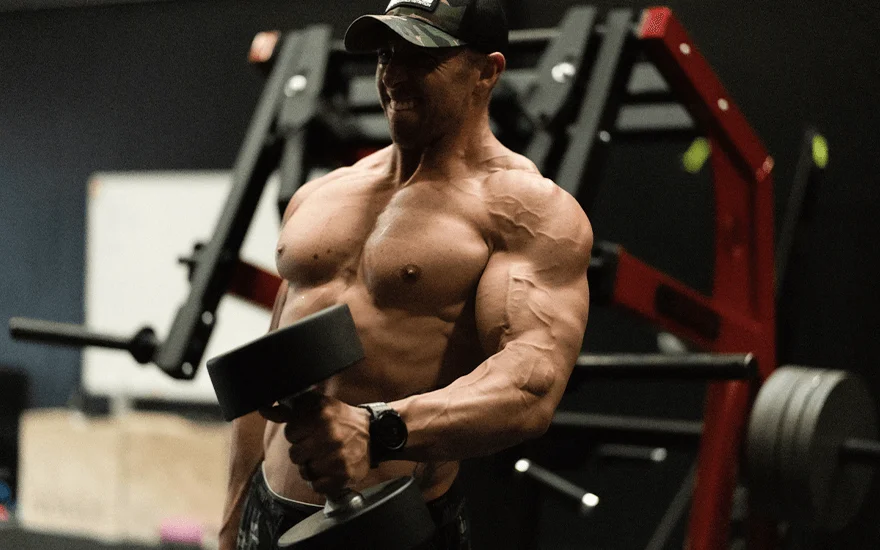
From that moment, he wanted to get better for his mother, who had previously had to deal with the possibility of her own son slowly dying from an unknown disease.
“I remember coming back home that day from that appointment and realizing that I need to start eating again.
“I went into my parents’ pantry, and I pulled out a box of Pop-Tarts, and I flipped around this box. I read, ‘400 calories in two Pop-Tarts.’ I’m thinking ‘400 calories?’
“I probably wasn’t consuming 400 calories a day for months. I forced myself to eat these two Pop-Tarts, which mentally was so difficult. Physically it wasn’t challenging, but mentally it was so difficult because there were 400 calories in these two toaster pastries. I couldn’t believe I was eating them.”
A long recovery journey began from the moment Nick swallowed the last grain of Pop-Tart. With his family’s support every step of the way, he became committed to getting better and improving his previously one-sided partnership with nutrition.
“I need to eat if I want to live. I need to eat because I can’t be selfish anymore because now this is affecting more people than just me. This is affecting my family, my friends, and other people.
“I can’t be selfish in this pursuit of starving myself. I need to get better. From there, it was literally months, if not years, of building healthy relationships with food again. But that was a switch for me, being confronted and the Pop-Tarts.
“I never thought I was overweight or fat. I never wanted to be super skinny. But I liked being able to control something.
“I think I just fell in love with the control.”
Same dog, old tricks
Fast forward a few years, and Nick lives an everyday college life, studying Nutrition at the Indiana University of Pennsylvania.
Perhaps it was no surprise that he found himself naturally curious about health and performance, given his teenage experience with his own condition.
But as time progressed, a passion for sport and performance began to take over, eventually leading to a shift in his direction.
Not long after turning around his eating habits, he discovered the gym.
“The first gym I found was just our high school football locker room gym, which was a small gym collection of just old pieces of equipment. I fell in love with the gym, but also simultaneously with the supplement space.
“This is when pre-workout supplements were just starting, and I loved the experience of taking a pre-workout supplement and having this energy boost to get through a crazy training session.
“I was 17, 18 years old, so my testosterone was thriving at this point in my life. I fell in love with this lifestyle, community, space and sport.”
That love led to Nick becoming immersed in the world of strength training and bodybuilding, and before long, he had come a long way from the 14-year-old whose frame would be reported missing inside his own t-shirt.
Eighteen months away from graduating college and having gained serious muscle and size, Nick decided to enter a bodybuilding competition. However, he would be required to lose 30 to 40 pounds and get his body fat percentage into the single digits.
Nick was required to be back in control.
Macros, calories and nutritional content had to be monitored to the finest molecular level in order to make the weight.
If he needed to eat 250 grams of protein over a single day, he would eat 250 grams of protein, with the prospect of even teetering one gram on either side of the target, a disaster of apocalyptic proportions.
Another unhealthy obsession with food ensued over the coming years, with Nick regularly taking a food scale to restaurants to properly track and maintain his macro intake.
His diet had such a possessive leash that it prevented him from attending social situations, neglecting friends and family in favor of sticking to his diet.
Older, wiser, but still tanned
In order to halt another serious negative chapter with his diet, Nick knew he had to intervene once again, understanding that a balance had to be struck and maintained.
“I think I’ve taken that ability to control, and I have applied it to other parts of my business or my life that have led to success, but also have led to self-destruction in some aspects. I talked about how my ability to control variables has led me to successful moments of building a business and training for certain events. But it can also be taken to extremes and taken too far and it can be self-destructive.”
Having just competed and won in the Novice category at a bodybuilding competition in Orlando as recently as March, Nick is now in a unique position to compare his two experiences, separated by 11 years of self-development.
“Right now, what I have that I didn’t have prior to is self-awareness. I have self-awareness now that I know what I’m doing and why I’m doing it; it’s because I set this goal, and we’re documenting this journey, and I wanted to learn through this experience.
“Now I can take what I learned through this experience and create so much content afterward by sharing, ‘This is why I think you should train for performance, not physique.’
“This is what it can do. This is how it can spiral. This is why it’s a bad choice, in my opinion, for people, especially people who have unhealthy relationships with food.
“I now have the awareness that I can apply to these self-destructive journeys and help people through the process.”
In 2012, he was in college, single, and without kids. His duties and responsibilities were limited, allowing him to be selfish and single-minded.
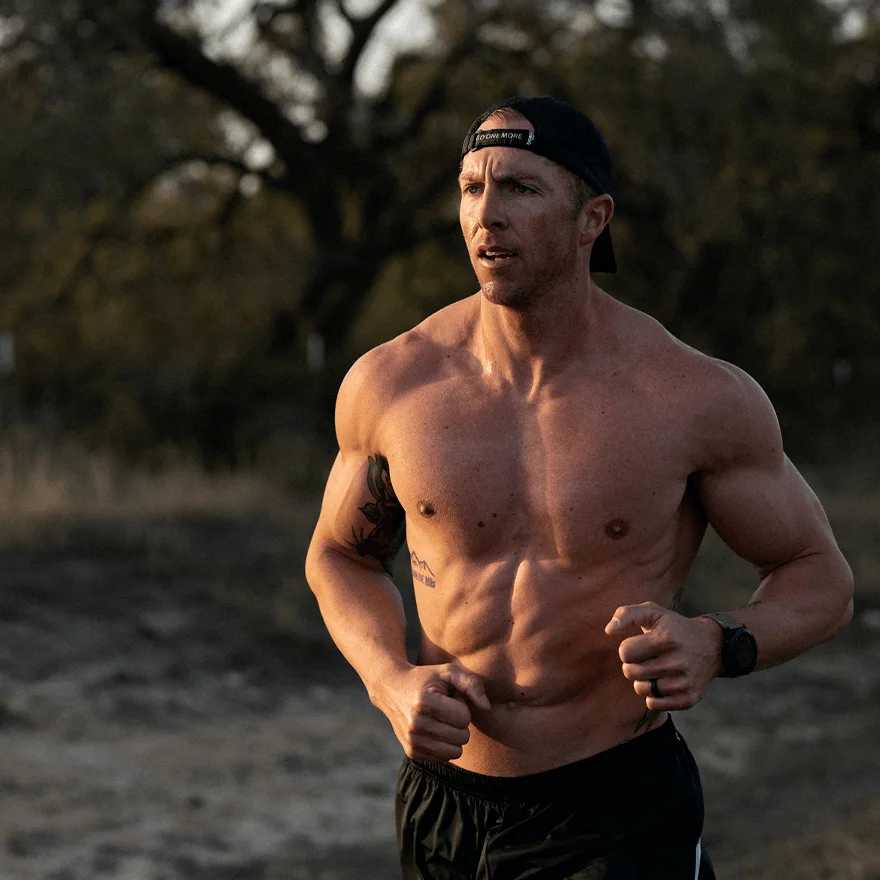
“Now that I’m married, I have an eight-month-old daughter, I have a business, I have more responsibilities. It’s harder to be selfish, and I don’t want to be selfish. So bodybuilding just doesn’t fit into my lifestyle for what I have going on right now.
“The bodybuilding prep for me was a self-experimentation, where it would be a failure if I didn’t take what I learned through this and I didn’t share. It’s my responsibility to share what I’ve learned through this.
“Now I can say, when you diet down this hard when you go to step on stage, yes, you might look ripped and jacked and amazing, but you might feel your ultimate worse. So now it’s my responsibility to share that content.”
Nick Bare is the perfect example of someone who has been through the two most extreme spectrums of an eating disorder.
Had he kept his secret eating disorder hidden in the shadows for longer in his mid-teens, he could have died if he marched on with his quest for self-punishment.
It would have killed him.
Now, disillusioned with tracking every bite, he is in a happy place with food, blending high nutritional value with realistic consistency.
“I hate tracking food. I’d rather just eat based on what my body’s craving and listening to, because one, there’s this stress component.
“Tracking food becomes stressful, especially the deeper you get into a cut and that stress can turn into stress internally and externally in the body where you start holding water in different places.
“I’m a huge advocate of intuitive eating for quality, not necessarily quantity and eating enough.
“This bodybuilding prep has been a huge eye opener for me in terms of how I want to eat and train the rest of my life, but also helping other people train and eat in a certain way that I think is healthier.”
Eating disorders affect at least 9% of the population worldwide, with 9% of the U.S. population, or 28.8 million Americans, expected to have an eating disorder in their lifetime.
They are among the deadliest mental illnesses, second only to opioid overdose, and are the direct result of 10,200 deaths each year – one death every 52 minutes.
Hopefully, Nick’s openness around his own experience may save one of those lives.

